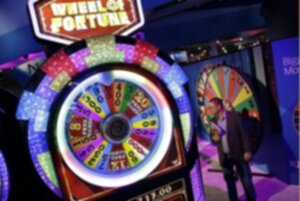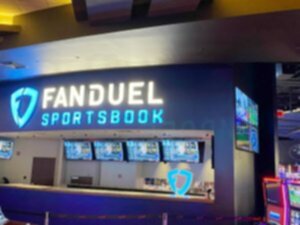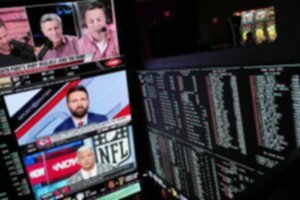With overwhelming support, a Maryland sports betting bill got one step closer to reality. During the November election, Maryland voters approved a referendum to legalize and regulate sportsbooks by a two to one margin. Now, the state legislature has gotten down to the details of implementing the voter’s will. The state House of Delegates passed HB0940, implementing Maryland sports betting, by a 129-10 vote. The bill next moves to the Senate.
Maryland Sports Betting Bill Authorizes Retail and Online Offerings
Adrienne Jones (D-Baltimore County), the Speaker of the House, introduced the Maryland sports betting bill. Regulated sportsbooks would have both in-person retail options as well as online and mobile apps. Her HB0490 authorizes the following licenses for sports wagering operators:
- Retail books at the state’s six existing casinos.
- Expanded betting options at Pimlico and Laurel Park horse racing tracks.
- A sportsbook at the state fairgrounds in Timonium.
- Offering the Baltimore Ravens, Baltimore Orioles, and Washington Football Team the opportunity to place betting windows in their stadiums.
- A riverboat sportsbook and off-track betting (OTB) operation on the Potomac River.
- An additional 10 in-person licenses for OTBs, restaurants, or other locations.
The Washington Football Team has already received a license to offer sports betting online in neighboring Virginia. The franchise is playing the two states against each other as it seeks to build a new stadium that includes a sportsbook.
Maryland Online Sportsbooks Would Be Limited
In addition to the 23 contemplated in-person sportsbooks, Maryland would offer 15 licenses for online operators. Though only 10 legislators voted against HB0940, opposition focused on the limited number of mobile licenses. It is estimated that 85% of Maryland’s total handle would come through apps and online sportsbooks.
Players would need to be 18 years or older to bet. Betting would not be limited to professional games and live bets would be allowed.
Each mobile license would require an upfront $500,000 application fee as well as a $100,000 annual fee. Lobbyist John Pappas noted that Indiana and Colorado, with similar populations, each have more than 30 online mobile betting licenses. Even before taxes, Maryland may be passing up $10 million by not allowing as many licenses as the market can handle.
Maryland Sports Betting Taxes Would Fund Education
Research revealed that Maryland can expect $15 – $19 million annually through sports wagering taxes. This is in addition to the fees raised through licensure.

Initial tax rates would be set at 15% of the Maryland sports betting handle. Every dollar an operator makes beyond $5 million in yearly revenue would then be taxed at 17.5%. The taxes would be the same for retail and online sportsbooks. Applying for a retail license would not prevent an operator from securing an online license. This will ensure some of the larger players like DraftKings and BetMGM will attempt to offer both options.
Under HB0940, Maryland sports betting taxes and licensing fees would be set aside to fund educational initiatives.
Will the Maryland Senate Implement Sports Betting?
The 2021 legislative session in Maryland runs through April 12. This means the Senate will have less than a month to debate changes. If the Senate passes a bill that differs from HB0940, the two bills would require reconciliation. One key issue for the Senate will be to make sure minority owned businesses have access to licenses. The 10 unaccounted for retail licenses in the House version could be used to secure minority representation.
If signed by Governor Larry Hogan, the implementation bill would be effective June 1, 2021. The state lottery and gaming control agency would control license distribution. As all of Maryland’s neighbors now have regulated sports betting, getting operations up and running soon is crucial.





